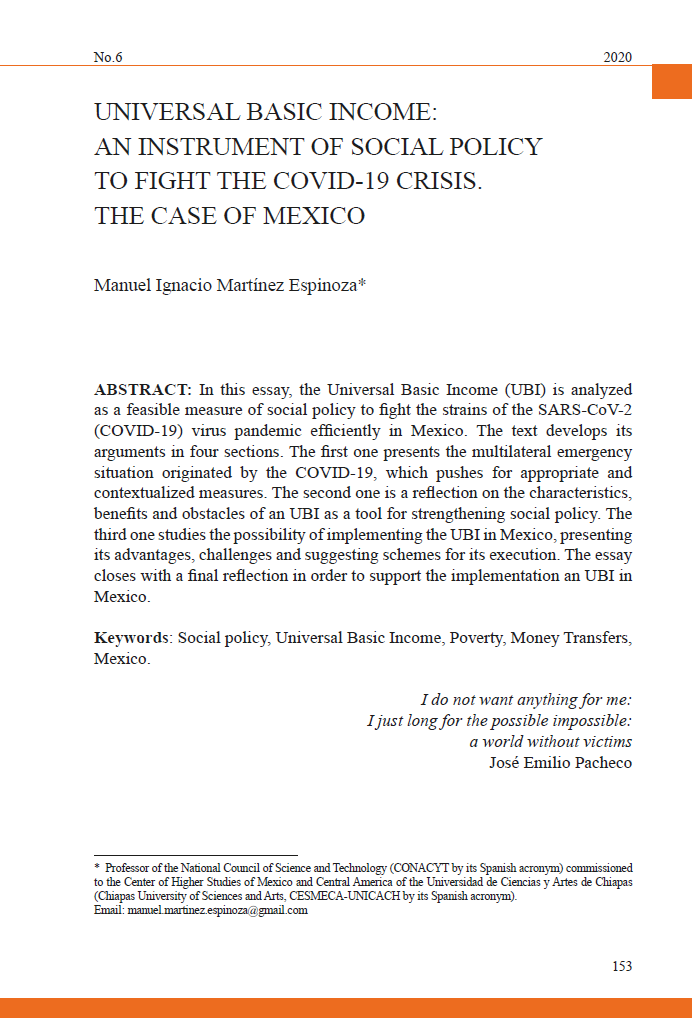Universal Basic Income: An instrument of social policy to fight the COVID-19 crisis. The case of Mexico
Palabras clave:
universal basic income, social policy, poverty, money transfers, MexicoResumen
In this essay, the Universal Basic Income (UBI) is analyzed as a feasible measure of social policy to fight the strains of the SARS-CoV-2 (COVID-19) virus pandemic efficiently in Mexico. The text develops its arguments in four sections. The first one presents the multilateral emergency situation originated by the COVID-19, which pushes for appropriate and contextualized measures. The second one is a reflection on the characteristics, benefits and obstacles of an UBI as a tool for strengthening social policy. The third one studies the possibility of implementing the UBI in Mexico, presenting its advantages, challenges and suggesting schemes for its execution. The essay closes with a final reflection in order to support the implementation an UBI in Mexico. Keywords: social policy, universal basic income, poverty, money transfers, Mexico
Descargas
Publicado
Cómo citar
Número
Sección
Licencia

Esta obra está bajo una licencia internacional Creative Commons Atribución-NoComercial-CompartirIgual 4.0.




